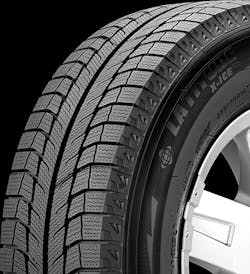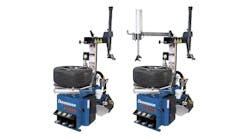Tire Rack Inc. evaluated three models of ice and snow tires designed for crossovers, sport utility vehicles and light trucks to see which provided the most traction on slippery surfaces. The contestants: the Bridgestone Blizzak DM-V2, Michelin Latitude X-Ice Xi2 and Yokohama iceGUARD iG51V.
All three models features aggressive tread patterns, a unique internal construction, and special tread rubber compounds that remain pliable even at extremely low temperatures.
Tire Rack's experts put the tires to the test on a local ice hockey rink, and the tires were mounted on a 2016 Porsche Cayenne V6, a vehicle model that each of the tested tires are designed to fit and serve. With the tires mounted and the vehicle’s traction control system engaged, Tire Rack measured the time needed to accelerate 60 feet on the ice, after a rolling start. Then, with the vehicle’s anti-lock braking system engaged, Tire Rack measured the distance needed to stop from a speed of 12 miles per hour.
Here are the results:
In both tests, the Michelin model performed the best, with Bridgestone a very close second. The Michelin Latitudes allowed the vehicle to accelerate 60 feet in 3.018 seconds, while the Bridgestone Blizzaks required just about one-hundredth of a second more. In braking, the Michelin tires brought the vehicle to a complete stop in 28.5 feet, while the Bridgestone tires required 29.2 feet.
The Yokohama model, on the other hand, required more than 3.5 seconds to accelerate 60 feet and nearly 41 feet to come to a complete stop. Although the Yokohama tires fell short in the category, it’s important to note that all the models in this round of testing, including the Yokohama, performed better than typical all-season tires.
Tire Rack’s testing team will evaluate the ice and snow models once again on a road loop and on Tire Rack’s test track later in the season when wintery conditions arrive in South Bend, Ind. The Tire Rack team also will perform other ice and snow tests at a dedicated winter test facility in northern Sweden.
Find the complete results of this test, and more detailed information at www.TireRack.com,



